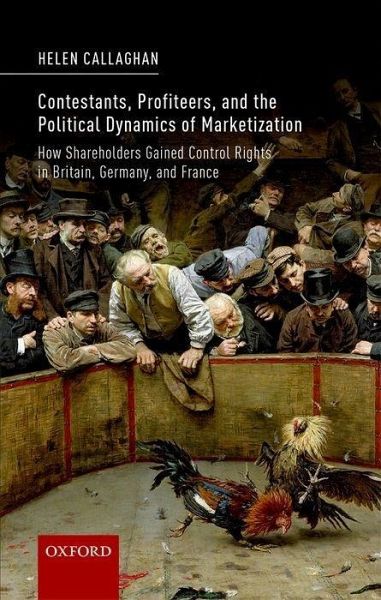
Contestants, Profiteers, and the Political Dynamics of Marketization
How Shareholders Gained Control Rights in Britain, Germany, and France
Versandkostenfrei!
Versandfertig in 1-2 Wochen
70,99 €
inkl. MwSt.
Weitere Ausgaben:

PAYBACK Punkte
35 °P sammeln!
Since the early 1980s, governments worldwide have taken a wide range of policy measures to strengthen and expand market-based competition. So far, the financial crisis that erupted in 2008 has not led to a significant policy reversal. Recent political events may well reflect widespread disenchantment with the consequences of neoliberal policies, but it remains to be seen whether the political leaders who rode to power by harnessing the discontent will deliver the market-restraining measures that many of their voters expect. This book highlights the role of "profiteers" in political efforts to ...
Since the early 1980s, governments worldwide have taken a wide range of policy measures to strengthen and expand market-based competition. So far, the financial crisis that erupted in 2008 has not led to a significant policy reversal. Recent political events may well reflect widespread disenchantment with the consequences of neoliberal policies, but it remains to be seen whether the political leaders who rode to power by harnessing the discontent will deliver the market-restraining measures that many of their voters expect. This book highlights the role of "profiteers" in political efforts to expand market-based competition. Political struggles surrounding the gradual marketization of corporate control in Britain, Germany and France from the 1860s provide empirical illustration. The book maps and analyzes the path-dependent evolution of support for shareholder rights relating to takeover bids among key interest groups, including managers, creditors, shareholders, and takeover service providers, as well as among political parties. By comparing the self-reinforcing and self-undermining policy feedback of market-enabling and market-restraining rules, it helps explain why market containment is an uphill struggle, while market expansion becomes easier with time.














